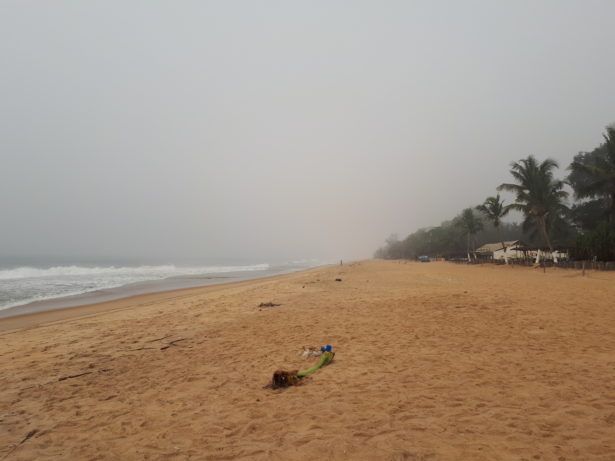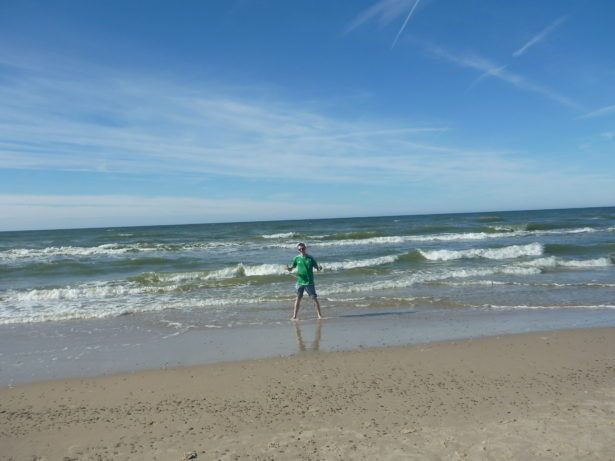When many of us think of the ideal vacation, we imagine ourselves relaxed on a tropical beach soaking in all the enchanting sights, sounds, smells and sun.
When preparing for a beach-intensive vacation, it’s vital that you cover all important bases including stocking up on your favorite beach accessories, making travel arrangements, organizing accommodation and planning day tours at your destination. You could pick up a couple of tips from BeachRated.
However, just because you are looking forward to having a great time doesn’t mean you are immune to risks that can make your holiday a regrettable one. To prevent this from happening, here are a couple of safety tips to bear in mind whenever you hit the beach.
-
Venture Feet First
You’ve seen it in the movies. Someone wades into the sea until the water level is just above their knee before they dive in. Unfortunately, this isn’t advisable in real life and serious injury may result. For starters, the ocean floor’s terrain will vary from beach to beach. You may think you are diving into an unobstructed patch of water only to dash your head against a rock.
Even when visiting a beach that you’ve been to numerous times before, you never know what may have happened to your favorite spot while you were away. Exercise caution by entering feet first. Only dive into shallow waters that you’ve already inspected.
-
Never Swim Alone or at Night
Often, travel is more fun when you are accompanied by someone else. That applies to swimming too. However, teaming up isn’t only about fun but, more importantly, it’s about safety. If anything were to happen to either of you while in the water, the other can offer assistance or call for help.
Swimming at night is even worse regardless of whether you are alone or not. Your visibility is greatly diminished and leaving you vulnerable to everything from hard objects below the water surface to dangerous sea creatures. What’s more, lifeguards may not be on duty at night which makes it harder to get professional emergency help in case you need it.
-
Beware the Rip Current
A rip current is one of the deadliest hazards on the beach. It can be hard to spot because the water may appear calm and devoid of waves. In fact, surprise and resulting panic when you’re unexpectedly caught in a rip current is one of the reasons it is so dangerous. The current quickly pulls you far away from the beach.
How do you deal with rip currents? For starters, avoid them. Be on the lookout for beach safety flags (especially yellow or red). If you do get caught up in one though, do not swim against the current. That will only tire you out.
Instead swim with the current initially and then gradually try to swim parallel to the beach. You’ll eventually swim out of the rip current (which is usually a narrow column heading out to sea) and be in waters that are calm enough for you to swim back to shore.
-
Watch the Weather and the Waves
The weather can have a dramatic effect on the state of the ocean. Keep an eye on gathering dark clouds, an acceleration of wind speeds, and distant flashes of lightning. Don’t wait for the storm to get to where you are to start to take precautions. The ocean could become quite aggressive well before nasty weather gets to where you are.
Rather, head back to your hotel’s swimming pool and hope for a better day to try your luck on the beach. Similarly, take note of high and low tides so you know what time each comes in. The differences can be drastic enough to make you lose your bearing when swimming.
Always remember that the sea knows no expert. Many of the people who’ve died or been seriously injured while at the beach were great swimmers with years of beach experience. The above safety tips are invaluable if you want to have a vacation worth remembering for all the right reasons.





Hey, Many people are facing problem at beaches, but what they took in backup, they doesn’t even know. Thanks for sharing the great beach safety tips, these tips will really help to every person during their vacation. Keep posting!
Hi ALbert thanks for the tips about backpacking to beaches. Safe travels. Jonny